THE CURE - FAITH 12" Vinyl LP Album
- 1981 Canadian Release
"Faith" is the third studio album by English alternative rock band The Cure. It was released on 11 April 1981
- 1981 Canadian Release
"Faith" is the third studio album by English alternative rock band The Cure. It was released on 11 April 1981
In the bleak post-punk landscape of 1981, where disillusionment and despair hung heavy in the air, The Cure emerged from the shadows with "Faith," a 12" LP that wasn't just an album – it was an existential exorcism. Released by Canadian label Vertigo, "Faith" was the sonic manifestation of a band teetering on the edge of the abyss, grappling with the specters of mortality, religion, and the inherent darkness of the human condition.
Historical Context and Musical Exploration
Following the stark introspection of their previous album, "Seventeen Seconds," The Cure plunged even deeper into the abyss with "Faith." The year was 1981, the Cold War was casting a pall over the world, and economic recession had bred a sense of hopelessness. The Cure, led by the enigmatic Robert Smith, channeled this collective angst into their music, creating a soundscape that mirrored the prevailing mood of the times.
"Faith" was a departure from the traditional verse-chorus-verse structure, embracing a more experimental and atmospheric approach. The album was a tapestry of droning synths, haunting guitar melodies, and Smith's melancholic vocals, all woven together with a sense of deliberate sparseness. This minimalism served to amplify the emotional impact of the music, allowing the listener to fully immerse themselves in the album's somber atmosphere.
Genre and Controversies
While "Faith" is often categorized as post-punk or gothic rock, it transcended genre boundaries, incorporating elements of ambient, psychedelia, and even hints of classical music. The album's brooding intensity and lyrical themes of death and despair were a stark contrast to the prevailing pop sensibilities of the time, leading some critics to label it as morbid and depressing. However, it was precisely this unflinching exploration of the darker side of human existence that resonated with a generation grappling with their own existential anxieties.
Production Team and Recording Studio
"Faith" was produced by Mike Hedges, who had previously worked with The Cure on "Seventeen Seconds." Hedges' production style was characterized by a raw, unpolished sound that perfectly captured the band's emotional intensity. The album was recorded at Morgan Studios in London, a legendary recording facility that had hosted the likes of Led Zeppelin, Pink Floyd, and Yes. The studio's cavernous spaces and vintage equipment contributed to the album's atmospheric sound, creating a sense of depth and resonance that enveloped the listener.
|
Music Genre: Post Punk, Alternative Rock |
|
Album Production Information: The album: "THE CURE - Faith" was produced by: Mike Hedges, and the Cure Sound/Recording Engineer(s): Mike Hedges, Graham Carmichael, David Kemp |
|
Record Label & Catalognr: A&M Records SP 79801 |
|
Media Format: 12" LP Vinyl Stereo Gramophone Record Total Album (Cover+Record) weight: 230 gram |
|
Year & Country: 1981 Made in Canada |
Personnel/Band Members and Musicians on: THE CURE - Faith |
|
Complete Track-listing of the album "THE CURE - Faith" |
|
The detailed tracklist of this record "THE CURE - Faith" is:
|
Description
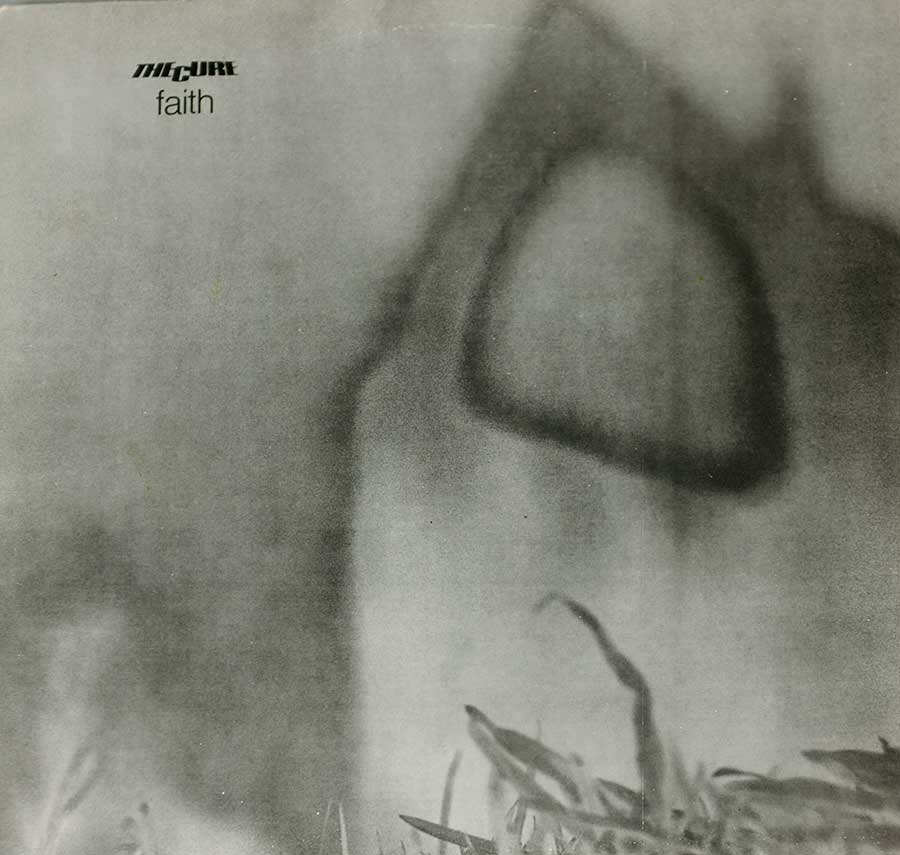
Note: The photos on this page are taken from albums in my personal collection. Slight differences in color may exist due to the use of the camera's flash. Images can be zoomed in/out ( eg pinch with your fingers on a tablet or smartphone ).
Description
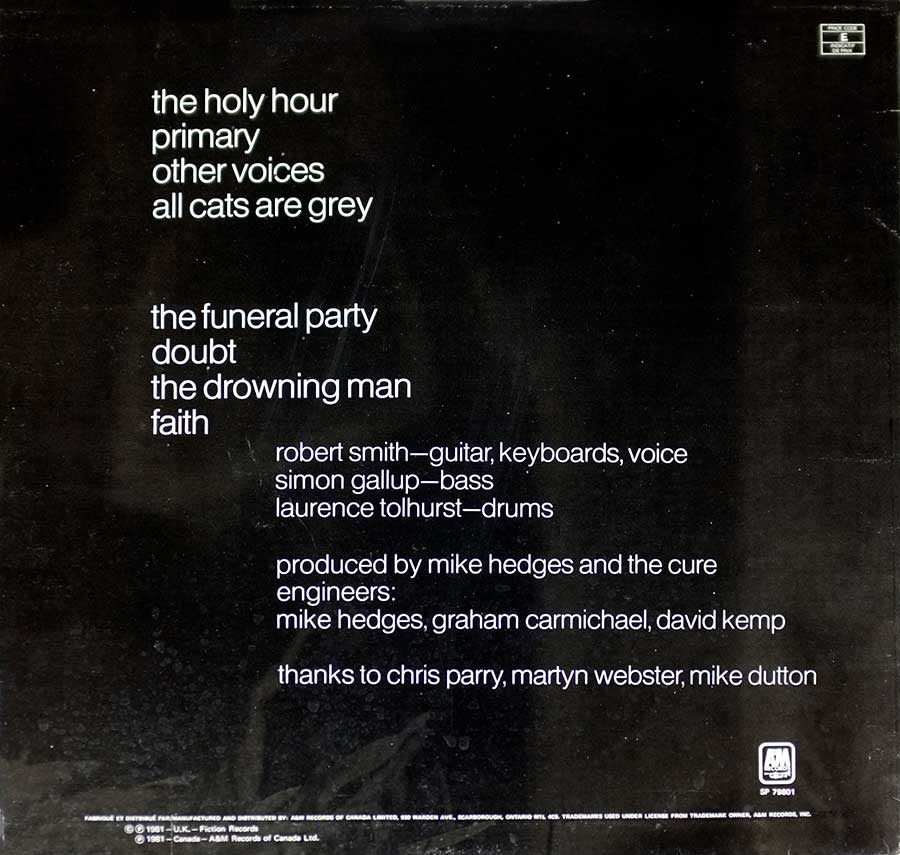
"Faith" Record Label Details: A&M Records SP 7901
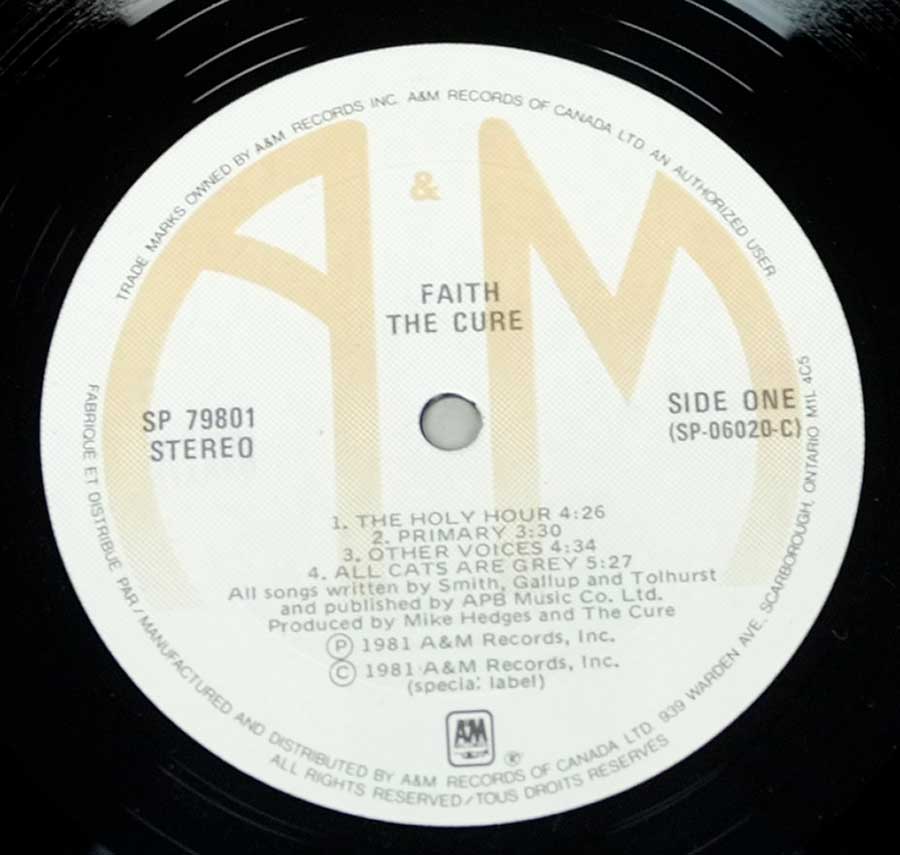
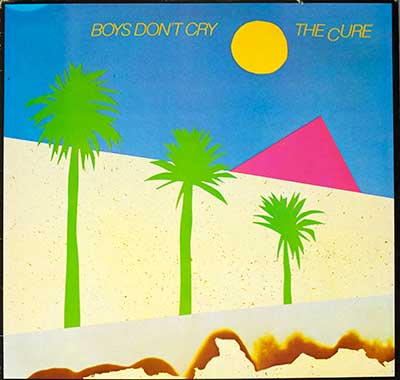
Rock
"Boys Don't Cry" is an album by English alternative rock band The Cure. It was released on 5 February 1980 in the UK and in August 1980 in the US.
Learn more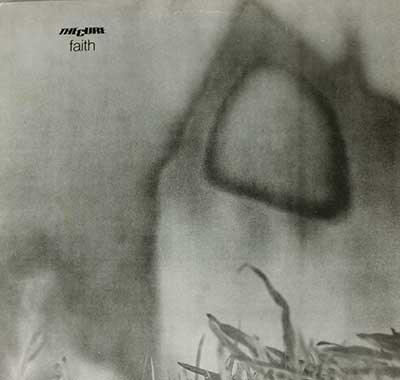
Rock, New Wave
"THE CURE - Faith" is the third studio album by English alternative rock band The Cure. It was released on 11 April 1981
Learn more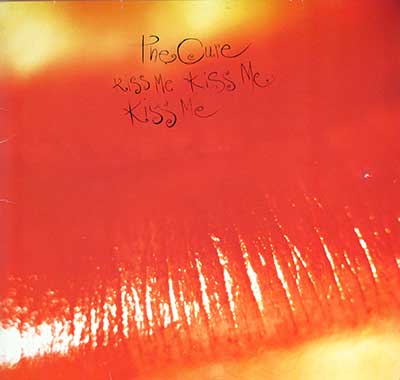
Rock, New Wave
"Kiss Me, Kiss Me, Kiss Me" is the seventh studio album by British alternative rock band The Cure. Released in 1987, this album helped put The Cure into the American mainstream, becoming their first album to reach the Billboard Top 40.
Learn more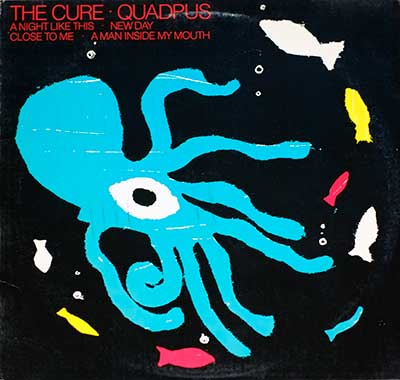
Rock, Alternative
"Quadpus" is the American/Canadian alternative of "Half an Octopuss" , and is released in 1986
Learn more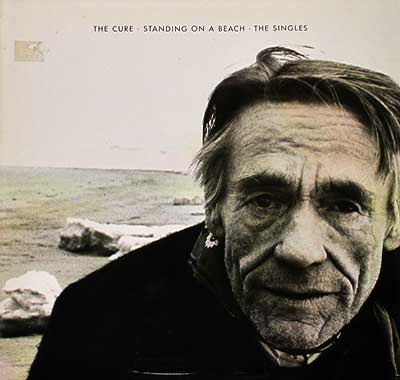
Rock, New Wave
"Standing on a Beach" is a singles compilation released by the British rock band The Cure in May, 1986, marking a decade since the band's founding in 1976. The title is taken from the opening lyrics of The Cure's debut single "Killing an Arab".
Learn more